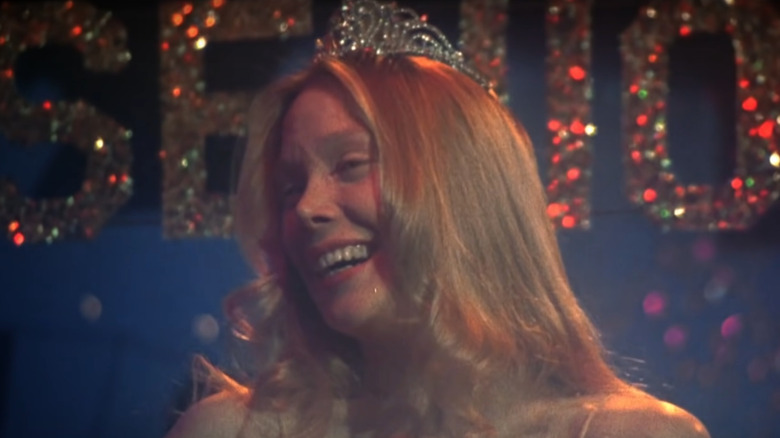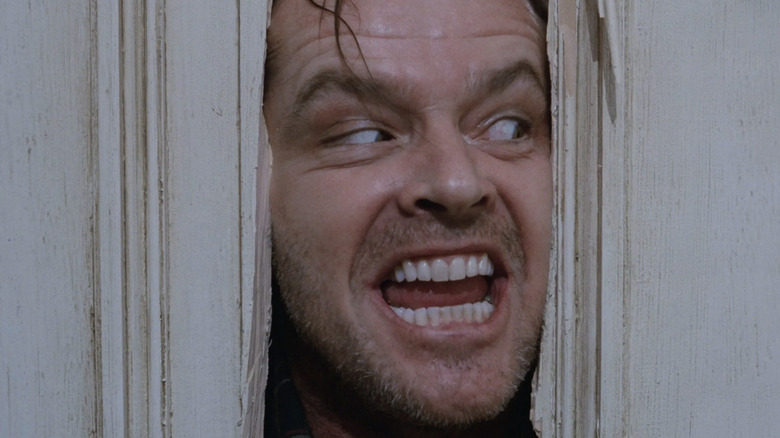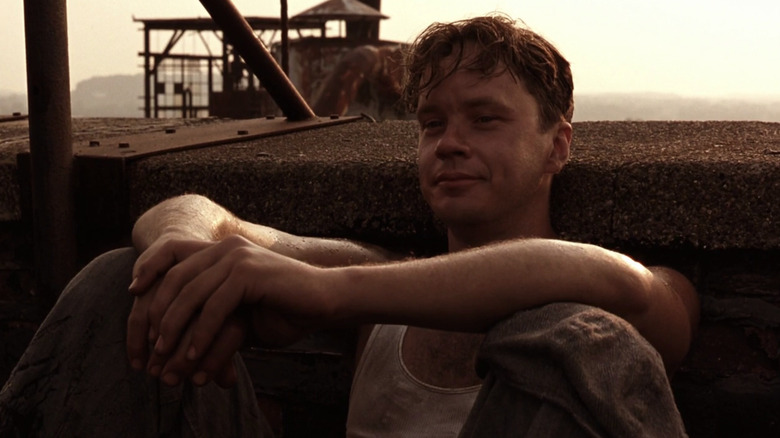Stephen King Doesn't Pay Much Mind To His Movie Adaptations
Since the release of Stephen King's novel "Carrie" in 1974, the author has been one of the most famous American horror writers of all time. In his long career, he has created homicidal cars, psychotic clowns, and obsessive fans. King's macabre stories always keep avid readers entertained, and his characters and plots are often adapted into films and television shows.
Since Brian De Palma adapted "Carrie" in 1976, which has become a horror classic, King's novels have inspired dozens of films, miniseries, and TV shows. King's novels are largely critical successes, but the adaptations based on his fiction are very hit and miss. "Carrie," "It," and "The Shining" top the list of horror classics, while films like "Dreamcatcher," "Dark Tower," and "Thinner" were major flops.
This shaky relationship with Hollywood and its audience might shake the foundation of some author's confidence, but King doesn't allow it to derail his writing. However, that doesn't mean King doesn't have strong feelings about the adaptations.
The worst
Stephen King has made no secret of how he's not a fan of Stanley Kubrick's "The Shining." Despite its cult classic status, King told Rolling Stone that the film paled in comparison to his novel in every way:
"The book is hot, and the movie is cold; the book ends in fire, and the movie in ice. In the book, there's an actual arc where you see this guy, Jack Torrance, trying to be good, and little by little he moves over to this place where he's crazy. And as far as I was concerned, when I saw the movie, Jack was crazy from the first scene. I had to keep my mouth shut at the time. It was a screening, and Nicholson was there. But I'm thinking to myself the minute he's on the screen, 'Oh, I know this guy. I've seen him in five motorcycle movies, where Jack Nicholson played the same part.' And it's so misogynistic. I mean, Wendy Torrance is just presented as this sort of screaming dishrag."
Despite King's criticisms, the film is considered a classic, and the internet is full of videos and articles discussing the supposed hidden messages and symbols Kubrick injected into the movie. An entire documentary called "Room 237" focuses on decoding these aspects of the film. When Rolling Stone asked King about the doc, he said:
"Those guys were reaching. I've never had much patience for academic bulls***. It's like [Bob] Dylan says, 'You give people a lot of knives and forks, they've gotta cut something.' And that was what was going on in that movie."
'Movies are movies'
Stanley Kubrick's films aren't the only adaptations King disliked. The author has also openly criticized "Firestarter," "The Running Man," and "Dreamcatcher." However, that doesn't mean King has disliked all of Hollywood's takes on his stories. In an interview with Deadline, King praised "Stand By Me," "Misery," and "Shawshank Redemption." Regardless of his personal feelings about the movies, though, he told Vulture he never expects the movies to live up to his novels:
"The movies have never been a big deal to me. The movies are the movies. They just make them. If they're good, that's terrific. If they're not, they're not. But I see them as a lesser medium than fiction, than literature, and a more ephemeral medium."
It's understandable for an author to believe literature is superior to film, but many film buffs are sure to disagree. Sure, literature has a much longer history than film, but King must see the unique possibilities of the medium because he has a longstanding practice of offering up the rights to his stories to young filmmakers for a dollar.
King's habit of writing cinematic characters and settings has made for a very hit and miss record in Hollywood, but neither outcome will stop the prolific writer from cranking out more homicidal monsters or superfans for avid readers and film buffs to enjoy.


